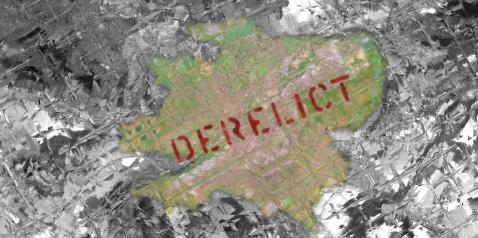University students sends city of Canterbury to the dial-up age

With three universities, two colleges and multiple schools all arriving back at their desks at the same point in time, especially the migration of students flocking back to the city, has left my home, the historic city of Canterbury, with crawling broadband speeds.
I don't often write Doomsday or "oh crap, it's the end of the world" posts which depict destruction, death to many and widespread panic. This isn't really one of those, but it does feel like it.
This is all down to the mass influx of students descending onto the city; over 31,000 spotty students from all corners of the globe. But because the population of Canterbury is just over 40,000, the students returning to their houses from Christmas have ended up flooding the entire telephone exchange - the holy, all round provider of Internets.

Let's do some rough maths (or "math", as you American's say, which makes no sense considering it's "mathematics", not "mathematic"). 31,000 people go home, take away 4,000 because they live outside the city and in neighbouring villages, 6,000 study through the university network network, leaving a still high-up 21,000 packed into one telephone exchange. It's over-cramped, overworked, and no wonder the poor exchange has slowed down to almost a standstill.
The universities are spread over the city; one in the north on a campus, the other is part of a branch of buildings where as a whole it is a university, and the other is in the city center and south on their own campus. The main university, University of Kent (UKC), has its own dedicated telephone exchange though, with roughly 1GB cable running into it and multiple fail-safe and backup systems. So it's unlikely this is the problem. The same can be said for the other universities, as one spokesperson for the university said:
"It can affect others but not directly. UKC has separate connections to the Internet backbone via JANET. However, the numbers of students in the area, coupled with the cheap prices of broadband, lead to more students having their own Internet access every year. This, when paired with the ancient phone networks in most of England, leads to inevitable overload, so it's mainly out of the universities hands."
So with my off-campus speeds being incredibly slow towards the evening time, I asked around a few people and many, from different ISP's as well as the same, were also suffering with massive pings, network latency, slow download speeds, but strangely enough, high upload speeds. Jared Bissenden, musician and student at UKC, studying computer science and a good friend of mine told me:
"It seems considerably more likely its the influx of new customers, especially since this summer when they enabled the exchange, there are at least 5 more broadband companies selling in Canterbury than this time last year."
As you can see clearly, over the course of the day, the download speed drops significantly from download speeds in the region of 1.6mb/s, down to around 210kb/s; while upload speeds are naturally slower in comparison to download, but ends up being faster to upload than it is to download by the end of the day. I can't download anything from 4pm, otherwise it goes no faster than 16kb/s to download, which is en par with dial-up speeds.
Anybody else want to share their stories of utter discontent with their ISP's, broadband, or students being a pain in the arse? This won't just be Canterbury, no doubt... there's panic on the streets of London, Dublin, Dundee, Humberside... ![]()